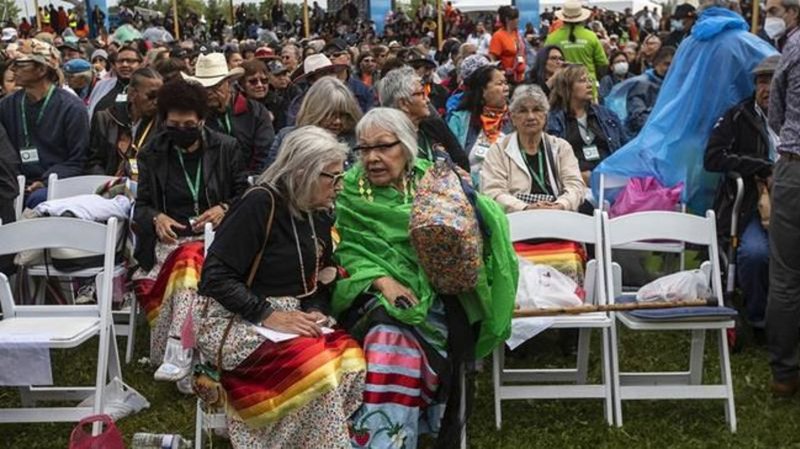
Reaction to the Pope’s apology for Catholic Church’s role in residential schools
MASKWACIS — Pope Francis delivered on Monday an apology for the Roman Catholic Church’s role in residential schools, saying many Christians supported the colonization of Indigenous people. He made the remarks at the former site of the Ermineskin Indian Residential School in community of Maskwacis, south of Edmonton.
Here is some of the reaction to the historic apology:
“Pope Francis’s words today and in Rome this spring represent a journey that has taken more than 180 years — from the time the doors of these so-called schools opened to the challenges First Nations people live today. By apologizing for the abuses of the past, Pope Francis has helped to open the door for survivors and their families to walk together with the church for a present and future of forgiveness and healing. I accept and choose this path.” — Former Assembly of First Nations Chief Phil Fontaine, who attended two Manitoba residential schools
“Every survivor will choose how they feel about the apology. We have witnessed the Pope’s response to the Truth and Reconciliation Commission’s Call to Action No. 58 — and heard a message of hope to our people, Canadians, and Catholics worldwide: First Nations cultures, languages, and traditions matter. This message will help to guide us all on the path to reconciliation.” — AFN Regional Chief Cindy Woodhouse
